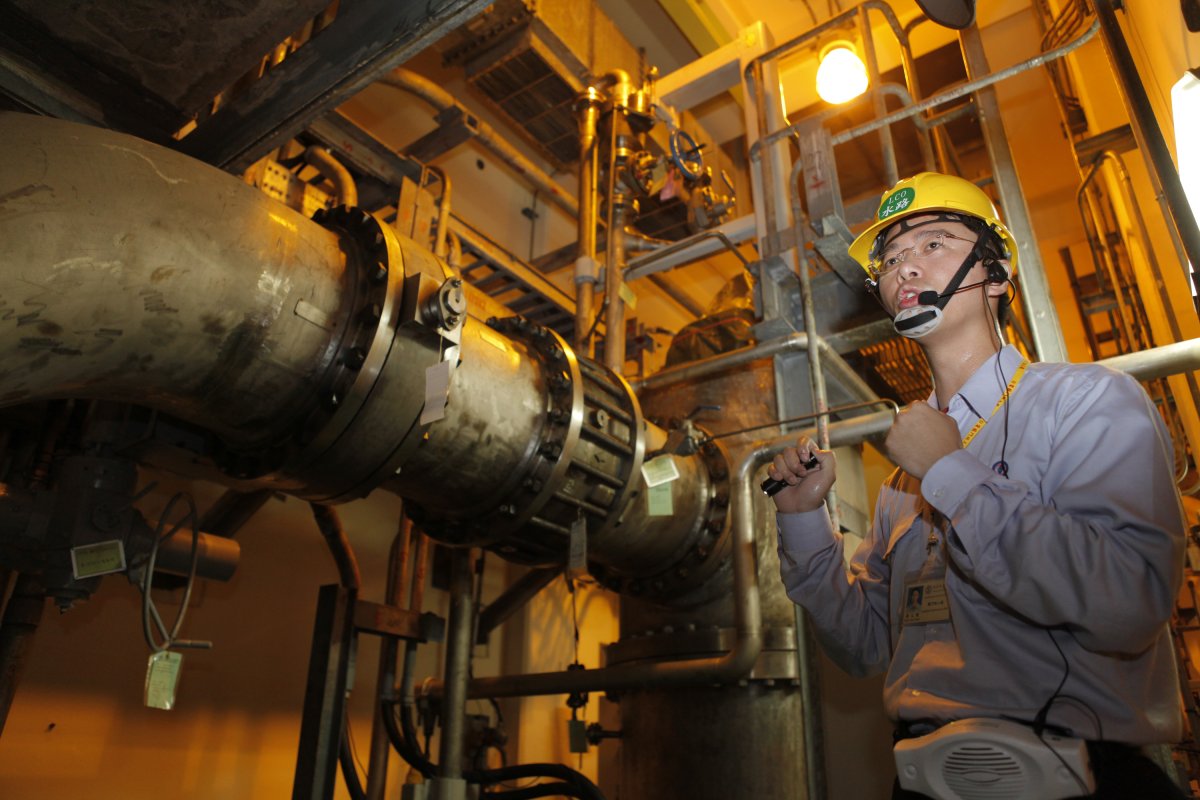The Ukrainian nuclear reactor at Zaporizhzhia came dangerously close to a meltdown when Russian forces damaged power circuits, affecting cooling systems. This has sparked concern over Taiwan's nuclear plants amid heightening tensions between China and the U.S. Considering China's preparations to invade Taiwan, the United States should seek to establish a convention with China that explicitly forbids the intentional assault of nuclear establishments to both protect Taiwan against nuclear devastation, and also to open up much needed dialogue with China that may help relax tensions.
In a wartime scenario, nuclear reactors are something of a house of cards. It's rather easy for stray ordinance to hit an unintended target, as demonstrated by stray missiles from the Ukraine conflict that landed in Poland, killing two civilians. Taiwanese reactors are not only near major population centers, but they also overlap with many optimal landing sites for Chinese invasion forces, heightening the risks of being damaged by close proximity to battlefronts.
Nick Roth, senior director of the Nuclear Threat Initiative's Nuclear Materials Security Program, said that the risks of things going wrong either from direct or indirect attacks is "quite high."
To manage rates of fission reactors rely on control rods to absorb radiation. If the control rods are damaged, there is nothing to limit reaction rates, and a small nuclear explosion can erupt. Cooling systems maintain temperature and pressure in nuclear reactors, and are extremely vulnerable in a warzone. If the power circuits to Taiwan's Kuosheng reactor cooling systems get damaged, a meltdown could occur where temperatures and pressures reach explosive levels.
Even if these explosions themselves don't have immediate anti-personnel effects, seasonal winds can still blow their radiation clouds onto large cities, sickening or killing thousands, and costing billions in damages.
Wenchung Liu, deputy minister of the Atomic Energy Committee in Taiwan, said in a September news conference last year that because of these risks of serious collateral damage, a deliberate attack by China on Taiwan's nuclear power plants was "unlikely." He claimed that military operations leading to damage and disruption of critical infrastructure were more realistic concerns.
But Ian Easton, senior director at the 2049 Research Institute, disagreed. He pointed out that in the People's Liberation Army (PLA) course manuals the Chinese Communist Party (CCP) stated, "Taiwan's nuclear power plants represent high-value military targets...[and advise] PLA combat commanders to ... [use] helicopter gunships armed with anti-tank missiles'' to attack facilities. The manuals also instruct soldiers to "wash off" nuclear radiation and not let it "slow you down as you finish conquering the island," clearly indicating the CCPs lack of care about radiation damage to their troops.
The Taiwanese government has waffled back and forth on building reactors. In the '60s the Taiwanese government recognized their energy vulnerability. Relying on fuel imports meant China could simply blockade Taiwan and cripple their ability to fight by cutting off their energy supplies.

In 1968, nuclear energy became the integrated focus of investment to close this gap in defenses. There were, however, many complications which led Taiwan to try dropping nuclear energy. First, Taiwan attempted to use its nuclear program as a cover to develop thermonuclear weapons, prompting U.S. intervention and causing a ban on Taiwan from ever recycling its nuclear fuel. Due to Taiwan's limited space, this meant they quickly ran out of room to store radioactive waste, with decision-making landlocked in debates.
The straw that broke the camel's back was Japan's 2011 meltdown and subsequent disaster-related deaths of over 2,000 citizens. Taiwan had similar close calls like the 1999 Jiji incident when an earthquake damaged energy circuits supporting coolant systems and tripping a reactor. Taiwanese citizens, paling at the seemingly prophetic calamity endured by their neighboring island nation, took to the streets demanding a return to fossil fuels. In 2016, the government acquiesced and pledged to phase out nuclear energy by 2025, but they never fully shut down or cleared all of their major reactors.
The Taiwanese government recently gave power companies permission to start up nuclear reactors again to fight power outages. Additionally, domestic pressures to return to nuclear power and sweeping victories for the pro-nuclear KMT Party perhaps mean a near-future shift in Taiwan's nuclear energy policy.
Ultimately, China and America desperately need détente. On top of absolving risks to Taiwanese nuclear reactors, a collaborative treaty between America and China prohibiting attacks on nuclear facilities could be the olive branch both countries seek. Thankfully, as former U.S. State Department foreign policy expert Bennett Ramberg pointed out, "a perfectly serviceable template already exists" for such a treaty. "In 1988, India and Pakistan, two of the world's most ferocious adversaries, cobbled together [an adequately detailed] accord" prohibiting attacks on nuclear establishments. He said "this model should be adopted as a universal norm."
Regardless of the fate of Taiwan's nuclear energy programs, the risks posed to existing facilities amid heightening cross-strait tensions demands international coordination—coordination that might make room for talks between America and China and a cooling of relations.
Garrett Ehinger studied Chinese culture and history for over a decade. He formerly worked as the director of a biodefense research lab and as director of the Chinese Language Labs at Brigham Young University in Idaho.
The views expressed in this article are the writer's own.
Uncommon Knowledge
Newsweek is committed to challenging conventional wisdom and finding connections in the search for common ground.
Newsweek is committed to challenging conventional wisdom and finding connections in the search for common ground.
About the writer
To read how Newsweek uses AI as a newsroom tool, Click here.








